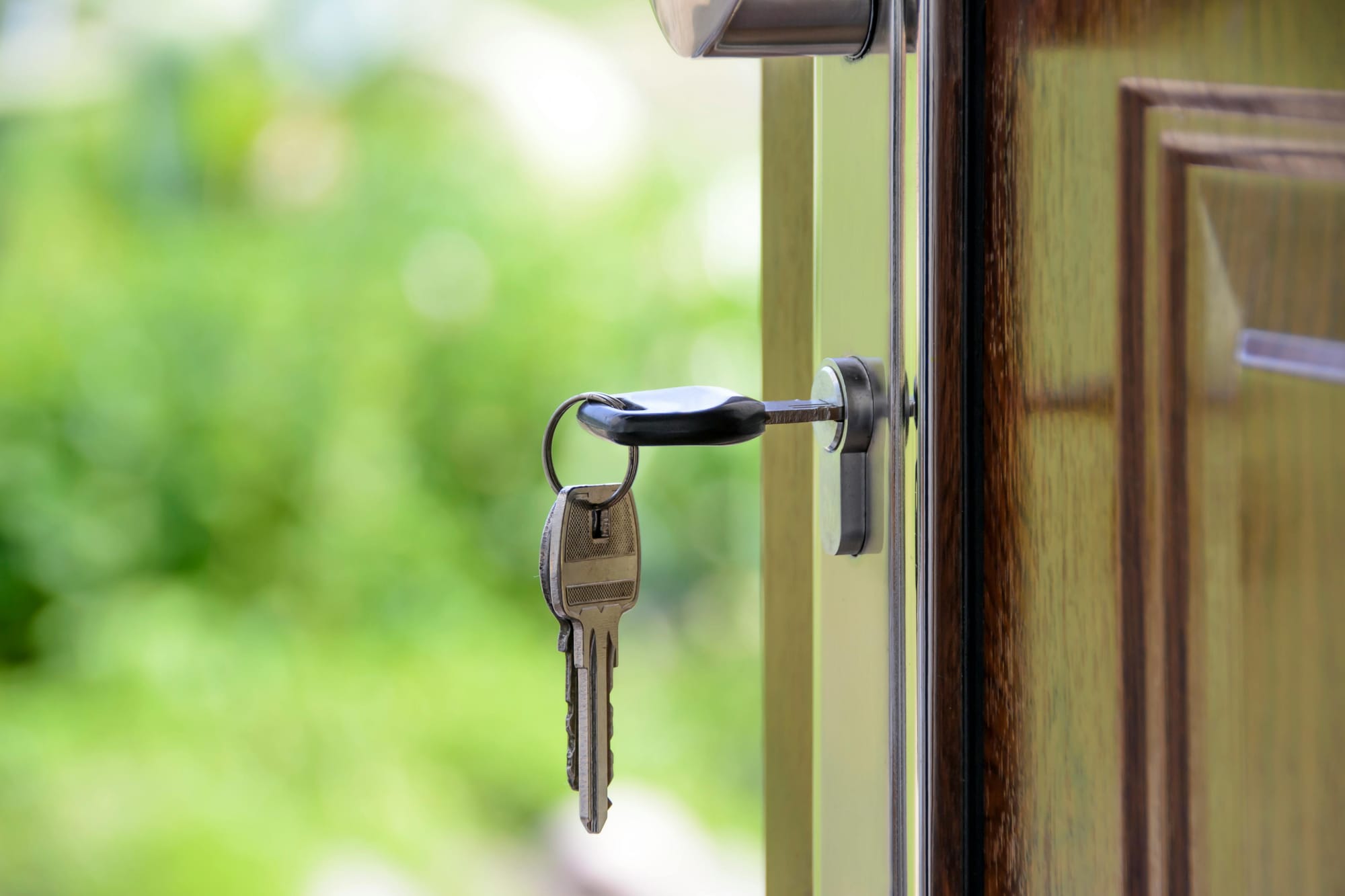Owning a home is a milestone many of us aspire to, and it’s often painted in the rosiest hues. Yet, beyond the glossy exterior of this achievement lies a tapestry of expenses that can surprise even the savviest buyers. As we pull back the curtain, we’re diving into the gritty details of what it truly means financially to own a piece of the American Dream. This is about the nuances of upkeep, the rhythms of annual taxes, and the unexpected whirlwinds that can sweep through your budget.
Get A Free Mortgage QuoteDeciphering the Hidden Costs
Property Taxes: Your Annual Tribute to Local Services
Property taxes are a direct contribution to the fabric of your community. Your home’s assessed value and the tax rate set by local governments determine the amount you pay. This money is vital for funding schools, public safety departments, libraries, and parks. The fluctuations in these taxes can stem from changes in local government budgets or shifts in home values due to the real estate market. Homeowners should keep abreast of local council meetings or public forums where these rates are discussed, as they can impact their annual expenses significantly. Understanding the assessment process and available exemptions or relief programs can help manage these costs. As part of the essential expenses of owning a home, property taxes demand attention and understanding to effectively budget for them over the long haul.
Home Insurance: Your Safety Net
Securing home insurance is like putting a safety net under your financial well-being. Home insurance safeguards against damage from fires, storms, theft, and other sudden disasters, ensuring your property stays protected. The specifics of your policy can vary, often influenced by your home’s structural features, the valuables inside, and even the likelihood of natural disasters in your area. For instance, homes in areas prone to flooding or earthquakes might see higher premiums reflecting the increased risk. Reviewing your policy annually to ensure it matches your current needs and to understand what is and isn’t covered is essential. Making informed decisions about additional coverage like flood or earthquake insurance before disaster strikes can spare you financial grief later. This strategic planning is crucial in managing the overall expenses of owning a home.
Maintenance and Repairs: The Inevitable Investment
The joy of homeownership often comes with the inevitable reality of maintenance and repairs, which are pivotal in keeping your sanctuary in top shape. From the roof over your head to the foundation under your feet, each component of your home might require attention over time. The cost of neglecting such maintenance can escalate quickly, turning minor fixes into significant financial burdens. Proactive homeowners set aside funds for regular upkeep, such as servicing HVAC systems, cleaning gutters, and addressing wear and tear before more considerable issues arise. This helps maintain the value of the home and reduces the risk of emergency repairs, which can be disruptive and expensive. Knowing what are housing expenses that might pop up enables you to set aside a suitable budget so your home stays a haven of relaxation rather than becoming a financial headache.
Utilities: Keeping the Lights On
Managing utilities is a continuous balancing act for homeowners. The trio of water, electricity, and gas forms the backbone of daily comfort and functionality within a home. These expenses of owning a home can fluctuate significantly with seasonal changes, personal consumption habits, and rate adjustments by local utility companies. For instance, heating costs can skyrocket in the winter, while air conditioning can lead to higher electricity bills in the summer. Investing in energy-efficient appliances and making thoughtful home improvements, such as upgrading insulation or installing solar panels, can help stabilize these costs over time. While such upgrades demand an initial investment, the long-term savings can be substantial, reducing the overall financial burden of what are housing expenses. Regularly monitoring and adjusting your usage can also lead to significant savings, making utility management a crucial aspect of homeownership budgeting.
HOA Fees: The Community’s Cut
Living within a community governed by a homeowners association (HOA) introduces another layer to the financial landscape of owning a home. HOA fees are recurring expenses contributing to the upkeep and management of shared spaces and services like landscaping, community pools, and fitness centers. The cost of HOA fees is influenced by the amenities you enjoy and the choices your HOA board makes. Homeowners should be aware that in addition to regular dues, they may occasionally face special assessments for major repairs or upgrades, which can unexpectedly inflate their budget. Being actively involved in HOA meetings and understanding the association’s financial health can help homeowners anticipate changes in fees and assess the value they receive from their contributions, making it a significant part of the expenses of owning a home.
Emergency Fund: Your Financial Buffer
Having an emergency fund is vital for any homeowner. Your financial safety net is ready to catch you when unexpected issues like a leaky roof or a faulty heater strike. These unforeseen expenses can strain any budget, making maintaining an emergency fund a top priority for homeowners. Many financial advisors recommend saving up to three to six months of expenses, factoring in what you might need for home upkeep and emergency repairs. This recommendation serves to cushion the impact of any financial shocks and maintain stability without needing to incur debt. Establishing and growing this fund should be considered an integral part of managing the overall expenses of owning a home, ensuring that homeowners can face various challenges without compromising their financial health or lifestyle.
Get A Free Mortgage QuoteEffective Budgeting Strategies
Anticipate and Allocate
A meticulous approach to budgeting is essential when tackling the expenses of owning a home. From day one, homeowners should weave a detailed financial plan that accounts for regular and intermittent costs—everything from mortgage payments and utility bills to property taxes and home insurance. Using digital tools like budgeting apps or traditional spreadsheets, homeowners can create a dynamic financial health overview. This systematic tracking allows you to spot trends in your spending, prepare for upcoming costs, and ensure funds are allocated where they’re most needed. For example, setting aside money for an upcoming tax bill while simultaneously managing daily utilities can keep you ahead of the curve, avoiding the stress of last-minute scrambles for cash. This strategic foresight protects your bank account and secures the investment in your home by covering the housing expenses comprehensively.
Incremental Savings Plans
Setting up a savings plan for big-ticket home maintenance projects, like a new roof or an HVAC overhaul, can save the day financially. Homeowners can spread the economic impact over months or even years by breaking down a large expense into manageable, scheduled deposits into a savings account. Similar to a layaway plan, this method reduces the stress of large one-time payments and helps maintain a healthy cash flow. Moreover, it allows homeowners to tackle big projects without resorting to high-interest financing options, keeping homeownership expenses in check. Regular contributions to this fund can be adjusted as financial circumstances change, ensuring flexibility within the broader home management and maintenance scope.
Regular Reviews
Maintaining financial agility as a homeowner requires periodic reviews of your budget. By scheduling regular check-ins—quarterly or bi-annually—you can assess how well your spending aligns with your financial goals and adjust accordingly. This proactive scrutiny helps you stay prepared for fluctuations in housing expenses and adapt to changes such as property tax hikes or unexpected repairs. It’s also an opportunity to evaluate how effectively your savings plans are building towards future needs. These reviews encourage a disciplined approach to financial management, keeping you well-informed and ready to act on new opportunities for savings or necessary shifts in spending. This ongoing vigilance is crucial for anyone looking to manage the expenses of owning a home efficiently, ensuring that both the expected and the unexpected are always within your financial grasp.
LendGo: Empowering Your Homeownership Journey
While LendGo focuses primarily on helping you secure the best mortgage rates, we also believe in empowering you with knowledge. Understanding the full spectrum of homeownership costs is essential. By equipping yourself with this knowledge and our top-tier financial tools, you’re not just buying a house but strategically managing a home.
If you’re poised to leap into homeownership or want to refine your current home budget, visit LendGo. Let us help you make informed decisions that lead to a happy home and a healthy budget.







